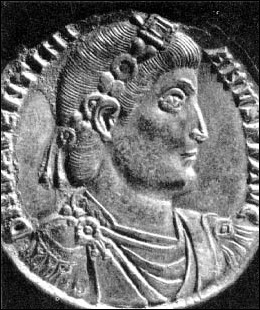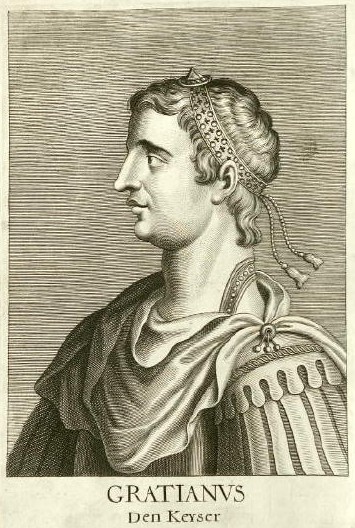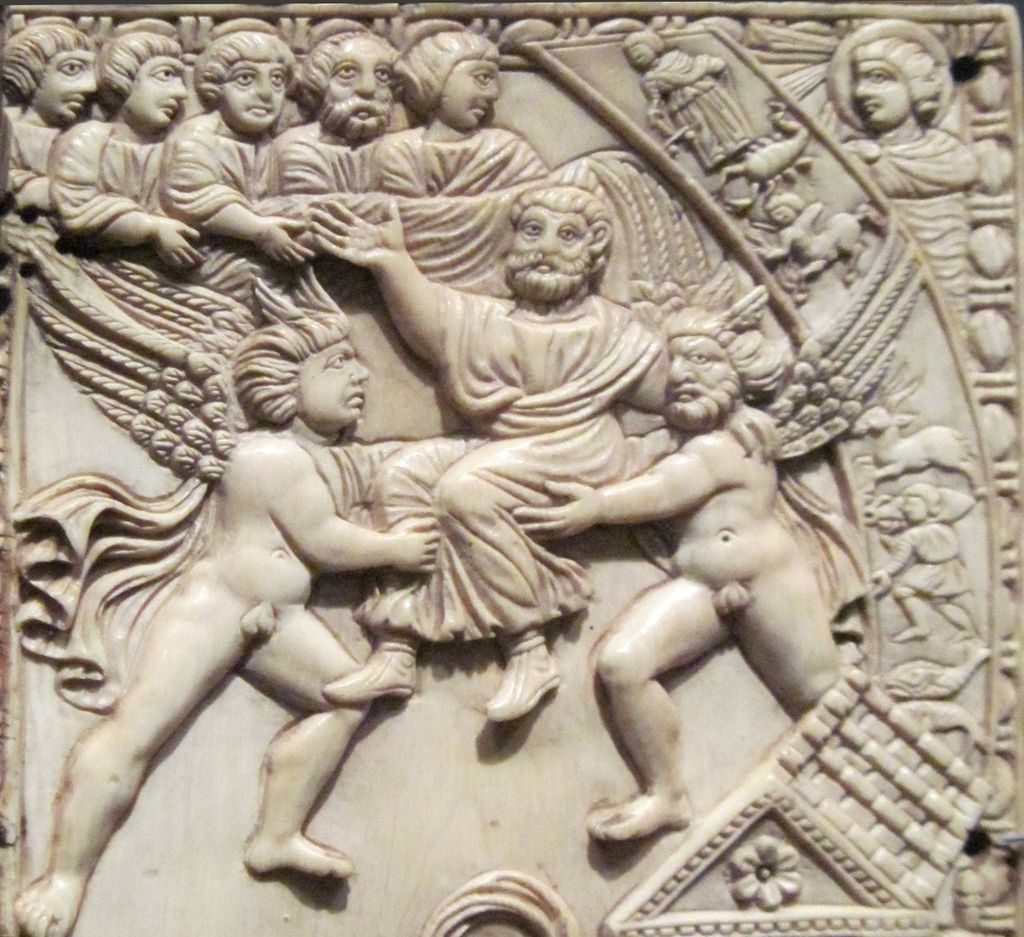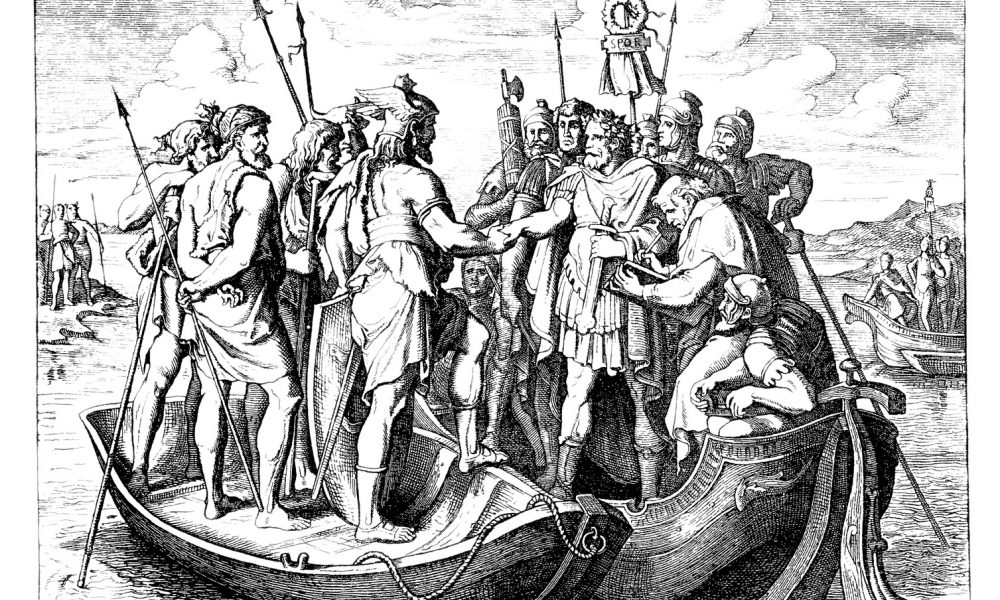
370 AD to 390 AD, Psalm 66: Retreat of Paganism.
This site was first built in French (see www.147thgeneration.net). The English translation was mainly done using « google translation ». We have tried to correct the result of this translation to avoid interpretation errors. However, it is likely that there are unsatisfactory translations, do not hesitate to communicate them to us for correction.
(for that click on this paragraph)
Summary
This generation is from the years 370 AD to 390 AD.
According to our count, this generation is the 66th generation associated with Psalm 66. It is in this Psalm 66 that we therefore find an illustration of the facts of this generation.
Valentinien in the West and Valens in the East must fight the growing « barbaric » pressure. It was then in a climate of uncertainty in both East and West that 50,000 barbarians crossed the Danube to settle in Thrace as federates. On the 9th of August, 378, a great battle took place near Adrianople. The Gothic cavalry annihilates the Roman army. Valens is killed. The Goths remain in the empire, it is the beginning of the integration of the « barbarian » peoples of the north and the west of Europe in the empire, the Roman world Mediterranean is the embryo of the Europe.
Gratian became the only master of the Roman Empire of East and West.
He refuses first to wear the mantle of the great pontiff. a title and a function related to all emperors without exception since Augustus. It means to proclaim that the state renounced paganism. This decision marks the end of pagan Rome,
The pagan Rome which by shaving the temple of Jerusalem and devastating Judea had believed that the Roman pantheon had vanquished monotheism is now transformed, under the combined pressure of Christianity and the peoples of the north, as the main vector of faith in one God and thus become the ferment of the spread of this faith to the world.
Talk
The « barbaric » pressure
During [1] this generation, Valentinian continues to preside over the destinies of the West.
Valentinian has some military success with the « barbarians »: the Alamans and the Franks on the Rhine and the Ouads and Sarmathes on the Danube, he tries to strengthen the border areas to secure them. It is also necessary to fight the Scots and the Saxons in Brittany.
When Valentinien died in 375, his son Gratien, aged sixteen, succeeded him.
Valens, on the side of the East must also fight the « barbaric » attacks: the Goths pushed by the Huns, Ouades and Sarmathes. On the internal plane, Valens favorable to the Arians, opposes the Catholics and the pagans.
Adrianople
It was then in a climate of uncertainty in the East as in the West that the catastrophe of Adrianople took place (August 9, 378). In 376, no less than 50000 barbarians (Goths jostled at home by the Alans, themselves pushed by the Huns) pass the Danube to settle in Thrace as federated.
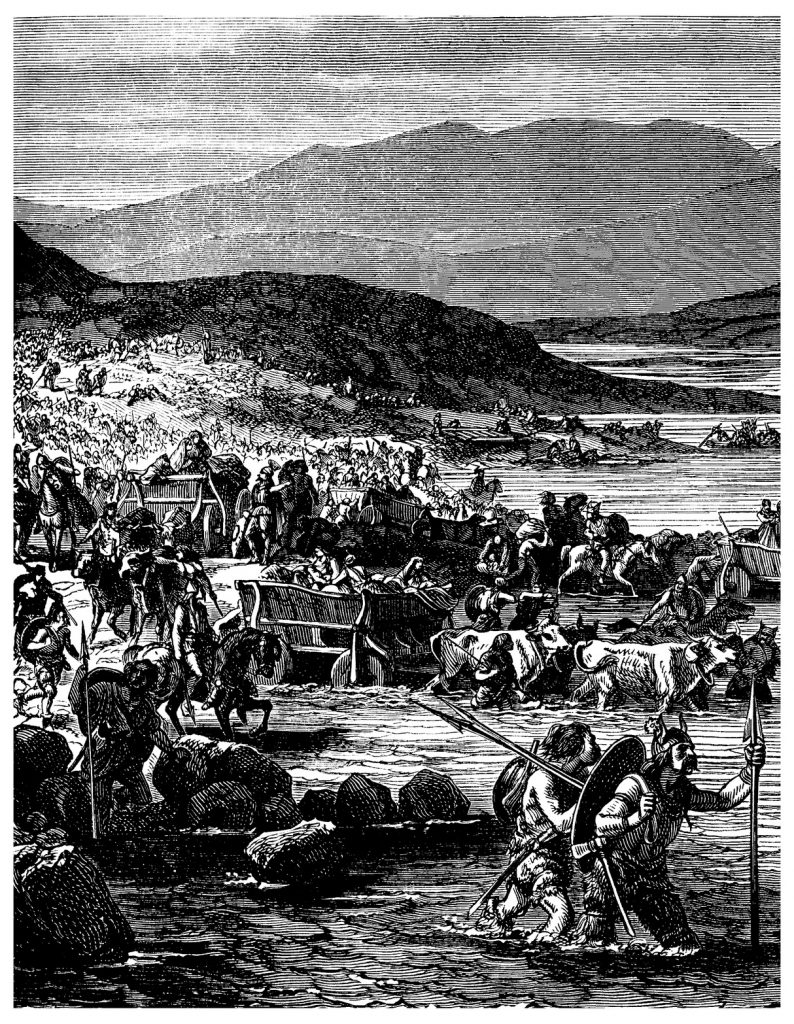
It is the beginning of the great migrations towards the West and the South. Valens runs to Constantinople. He begins by organizing a small war with some success. start of negotiations. But on the 9th of August, 378, a great battle took place near Adrianople.
The Gothic cavalry annihilates the Roman army. Valens is killed along with all the generals and thirty-five tribunes. The Goths remain in the empire, it is the beginning of the integration of the « barbarian » peoples of the north and the west of Europe in the empire, the Roman world Mediterranean is the embryo of the Europe.
When Valens died, Gratian became the only master of the Roman Empire of East and West. He makes two spectacular and important decisions.
La fin de la Rome païenne
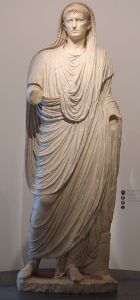
He refuses first to wear the mantle of the great pontiff, a title and a function related to all emperors without exception since Augustus. It means to proclaim that the state renounced paganism. This decision marks the end of pagan Rome, the one that destroyed the Temple of Jerusalem is officially converted to monotheism.
This decision follows the death (in 376) of Symmachus the father, prefect of Rome in 364-365, the most influential pagan senator, member of a very large family, of a declared paganism, but not sectarian. At his death, the uncompromising Christians of Rome openly attacked, greeting with joy the death of this adversary.
And the poem that one of them writes against Symmachus marks the definitive rupture of the « peaceful coexistence » which hitherto reigned between the two, pagan and Christian. The war of religions can begin.
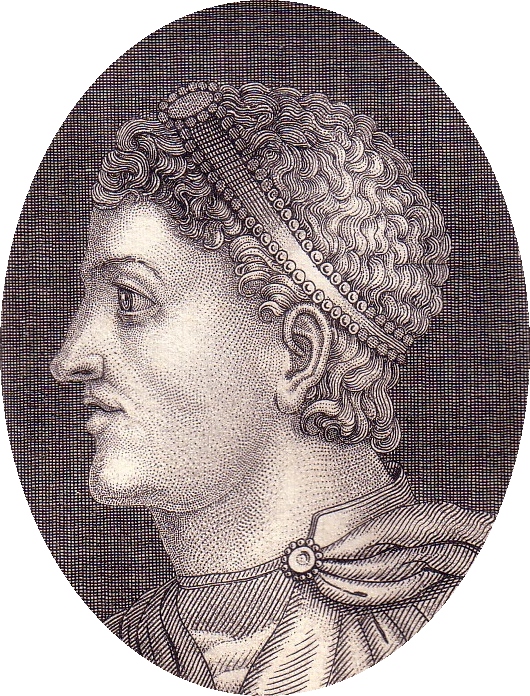
His second decision is to name Theodore Auguste who settles in the East. Peace is concluded with the Persians: Shahpur II dies in 379, his successors are mediocre and the Persians are now threatened by the Huns.
After three years of war with the Goths, Theodosius signed in 382 an agreement with Fritigern, their general. This agreement allows the Goths to settle between the Danube and the Balkans enjoying the autonomy and privilege of immunity for the land. The Goths thus constitute a proper nation. Basically it is the first Germanic state implanted in the Empire. Some saw in this treaty the end of the Empire.
The break with paganism is clear:
- The religious policy [2] of Gratian and Theodosius, then of Theodosius alone when his partner disappears, includes a component aimed at outlawing paganism that successive measures will eventually outlaw. At the time of his accession, Theodosius refused Pontifex Maximus’ coat, and Gratien gave it up soon after. […] Then (the author enumerates laws against Christian apostates), even if Theodosius retains his favor to pagans, old prohibitions against traditional religious practices, are renewed: in 381 and 382, the bloody sacrifices are proscribed under penalty of deportation; in 385, the practices of divination are on pain of death. These measures did not go much further than those taken by Constantine himself. But the two emperors will soon also attack the institutions of pagan worship. In the autumn of 382, Gratian had the altar of Victory removed from the Senate of Rome, and he suppressed the immunities of Vestals and pagan priests, confiscating their revenues and their allowances. In Constantinople and other cities of the East, Theodosius ordered the closing of the temples: only those containing works of art could remain open for purely cultural purposes. In 384, he sent to Egypt his prefect of the Pretory Cynégios, with the mission of closing the main temples.
The pagan Rome which by shaving the temple of Jerusalem and devastating Judea had believed that the Roman pantheon had vanquished monotheism is now transformed, under the combined pressure of Christianity and the peoples of the north, as the main vector of faith in one God and thus become the ferment of the spread of this faith to the world.
It is in this sense that we must interpret the psalm of this generation which, moreover, holds a special place in the Christian liturgy:

- For the conductor, a song of praise; shout for joy to God, all the earth.
- Sing the glory of His name; make glorious His praise.
- From this generation, Christianity will spread throughout the world of the time (all the earth), including the « barbarian » peoples of the north that begins their entry into « history ». Relayed by Islam in a few generations, the veneration of God will thus spread to our days to all the ends of the world, The psalms of David, the « praises« , will be integrated in many liturgies to better pray to God and thus to be at the center of the Christian prayer adopted by the nations.
- Say to God, « How awesome are Your deeds! Through the greatness of Your might, Your enemies will admit their lies to You.
- All the earth will prostrate themselves to You and sing praises to You; they will sing praises to Your name forever. »
- Rome had been erected as an enemy of the people of Israel and had defiled the temple of God. The heirs of Rome are now the first to venerate him (Your enemies will admit their lies to You) and take up the psalms of David in their prayer (they will sing praises).
- Go and see the deeds of God, awesome in His deeds toward mankind.
- He turned the sea into dry land; in the river they crossed by foot; there we rejoiced with Him.
- The psalmist compares this evolution to that of the people of Israel, just as God had extirpated the Jewish people from Egypt, a symbol of idolatry, today it is the nations that « burn » their old idols and turn to God.
- With His might, He rules the world; His eyes oversee the nations; the rebellious ones will not exalt themselves, ever.
- O peoples, bless our God, and make the voice of His praise heard.
- The end of the pagan empire of Rome for the benefit of the Christian West gives the real starting point for nations to turn their prayers to God.
- He, Who kept our souls alive and did not let our foot falter.
- For You tested us, O God; You refined us as though refining silver.
- You brought us into a trap; You placed a chain on our loins.
- You caused man to ride at our head; we came in fire and water, and You took us out to satiety.
- To achieve this result, the people of Israel paid a high price. For Rome before turning to God fought the people of Israel with strength. This one for three centuries has resisted in his faith in God despite the misfortunes suffered during this period. Moreover, with the joint rise of Rome and the Persian empire, the Jews, if they are not as numerous as in the past, are present on all the lands conquered by these two empires or under their influence. The Jewish faith, divided into many sectarian currents before the catastrophe of 70, is now unified thanks to the efforts of the rabbis to standardize it. Be it through the Jerusalem Talmud, which is nearing completion, or the already-mature Babylonian Talmud.
- I shall come to Your house with burnt offerings; I shall pay You my vows,
- Which my lips uttered and my mouth spoke in my distress.
- Burnt offerings of fat animals I shall offer up to You with the burning of rams; I shall prepare cattle with he-goats forever.
- Come, hearken and I shall tell all you who fear God what He did for my soul.
- My mouth called out to Him, and He was exalted under my tongue.
- If I saw iniquity in my heart, the Lord does not hear it.
- But God heard; He hearkened to the voice of my prayer.
- Blessed be God, Who did not remove my prayer and His kindness from me.
- David makes a final positive assessment of recent generations who saw, despite the fate reserved for his people since the advent of Rome, the (slow) progress of nations towards God and the truth. He renews his confidence in God and his confidence in the final resurrection of his people who will still pay a very high price in future generations before the nations have access to an enlightened vision of the divine.

[1] Summary made from Marcel Le Glay / « Rome II. Greatness and fall of the Empire « / Chapter: « The foundation of a political system » (French: « Rome II. Grandeur et chute de l’Empire/Chapitre » : « La fondation d’un système politique » (p. 541 à 548) ).
[2] Pierre Maraval: ‘The Christianity from Constantine to the Arab conquest » / Chapter: « The expansion of Christianity » (French: « Le Christianisme de Constantin à la conquête arabe » /Chapitre : « L’expansion du Christianisme » (p. 20/21) ).

